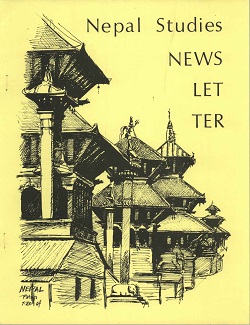Author Biography
Victoria M. Dalzell is an ethnomusicologist whose work focuses on ethnicity, ritual, and belonging in Nepal and the Himalayan region. She has received a Franklin Research Grant from the American Philosophical Society (2019) and a Fulbright IIE (2012-2013). Her research has been published in Anthropology and Humanism, Asian Music, and Studies in Nepali History and Society. She received her PhD from the University of California Riverside in 2015 and continues to reside in Southern California.
Abstract
In Nepal, ethnicity is often constituted through ritual practice. If ritual participation is a key way of exercising membership in an ethnic group, how might Christians--who no longer participate in many community rituals--demonstrate their belonging in ethnic communities? In this article, I argue that modifying traditional songs and dances for a church context is one way that Christian Tharus continue to identify with their ethnic communities within a multicultural Christian community. I examine two Christian Tharu performances: performing the huri nāc (a Kathariya Tharu song and dance genre performed during Holi) at interchurch events and arranging an original, Nepali-language hymn as a maghauta nāc (a song and dance genre performed during Tharu celebrations of Māghī). The first performance contends that Tharu religion can comprise of more than one religious tradition, challenging essentialist narratives of what Tharu religion should be. The second performance declares that Christian Nepali practice is wide enough to encompass Tharu cultural signifiers. I draw on my ethnographic research in Tharu communities in Kailali and Dang districts, which ranged from attending church events, seasonal music competitions, and community festivals to interviewing lay men and women, pastors, and other church leaders. Discussing the musical choices of these Christian Tharus allows me enter the conversation about belonging within Himalayan studies. I demonstrate how a focus on belonging does not negate the importance of identity, but is a complement to studies of difference.
Acknowledgements
Research for this article was supported in part by a Fulbright IIE grant. The author is grateful to the members of the Tharu New Testament translation team as well as the pastors and members of Tharu churches who graciously shared their experiences with her. Portions of this article first appeared as conference papers at the Society for Ethnomusicology’s Annual Meeting in Austin, TX in 2015 and the Annual Kathmandu Conference in Kathmandu, Nepal in 2018. Many thanks to colleagues who contributed to conference discussions and commented on earlier drafts of this article: Deborah Wong, Jonathan Ritter, Jacqueline Shea Murphy, Lauren Leve, Hilary Brady Morris, Allison Frazier, and two anonymous reviewers. The author remains responsible for all shortcomings in the article.
Creative Commons License

This work is licensed under a Creative Commons Attribution-Noncommercial-No Derivative Works 4.0 License.
Recommended Citation
Dalzell, Victoria M.. 2020. Giving God Glory: How Christian Tharus Negotiate Belonging through Ritual Music in Nepal. HIMALAYA 40(1).
Available at:
https://digitalcommons.macalester.edu/himalaya/vol40/iss1/5


